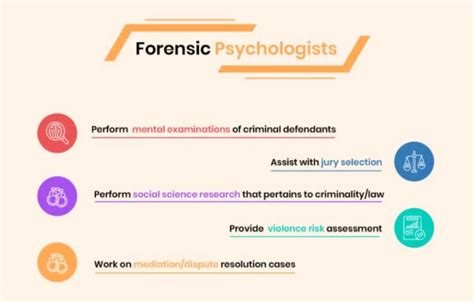How to Become a Forensic Psychologist: A Comprehensive Guide
A career as a forensic psychologist offers a fascinating blend of psychology and the legal system. It's a challenging yet rewarding path, demanding dedication, extensive education, and a strong commitment to ethical practice. This guide outlines the steps necessary to achieve your goal of becoming a forensic psychologist.
Education: The Cornerstone of Your Career
The journey to becoming a forensic psychologist begins with a strong educational foundation. This typically involves:
1. Bachelor's Degree: Building a Solid Base
You'll need a bachelor's degree, ideally in psychology. Focus on strong grades, particularly in core psychology courses like research methods, statistics, developmental psychology, and abnormal psychology. Consider supplementing your coursework with electives in criminology, sociology, and law. Strong academic performance is crucial for admission to graduate programs.
2. Graduate Education: Mastering the Field
A doctoral degree (Ph.D. or Psy.D.) in psychology is absolutely essential. Look for programs specifically offering a forensic psychology concentration or specialization. These programs will provide in-depth training in areas critical to forensic work, such as:
- Forensic assessment: Learning to conduct psychological evaluations for legal purposes.
- Legal principles: Gaining a comprehensive understanding of legal procedures and court systems.
- Ethical considerations: Mastering ethical guidelines specific to forensic psychology.
- Clinical interviewing: Developing advanced skills in conducting interviews with individuals involved in the legal system.
- Expert testimony: Preparing for and delivering expert testimony in court.
Choosing the right program is vital. Research programs carefully, considering faculty expertise, research opportunities, and internship placements.
3. Postdoctoral Training: Gaining Practical Experience
After completing your doctoral program, a postdoctoral fellowship or residency focused on forensic psychology is highly recommended. This hands-on experience provides invaluable practical skills and allows you to build your professional network. Look for opportunities in settings such as:
- Hospitals: Working with forensic patients.
- Correctional facilities: Assessing and treating inmates.
- Law enforcement agencies: Consulting with police and other law enforcement professionals.
- Private practice: Gaining experience in independent practice, possibly focusing on forensic evaluations.
Licensing and Certification: Navigating the Legal Landscape
Becoming a licensed psychologist is a critical step. Requirements vary by state, but generally involve:
- Completion of doctoral education: From an accredited program.
- Postdoctoral training: Completion of a supervised clinical experience.
- Passing the Examination for Professional Practice in Psychology (EPPP): A standardized national exam.
- State licensing examination: Specific to your state of practice.
- Background check: To ensure suitability for the profession.
Check your state's licensing board website for precise requirements. Additional certifications, such as those offered by the American Board of Forensic Psychology (ABFP), can enhance your credibility and career prospects.
Developing Essential Skills: Beyond Academics
While formal education is paramount, success as a forensic psychologist demands the development of crucial soft skills:
- Strong communication skills: The ability to clearly articulate complex information to both legal professionals and lay audiences is essential.
- Excellent writing skills: Producing comprehensive and well-written reports is a fundamental aspect of the job.
- Analytical skills: Carefully analyzing evidence and drawing sound conclusions.
- Ethical awareness: Maintaining the highest ethical standards in all professional activities.
- Resilience: The field can be emotionally challenging; resilience is vital.
Networking and Career Advancement: Building Your Professional Network
Attend conferences, join professional organizations like the American Psychological Association (APA) and the American Academy of Forensic Psychology (AAFP), and actively network with other professionals in the field. This will not only help you stay up-to-date on current trends but also open doors to career advancement opportunities.
Becoming a forensic psychologist requires a significant investment of time and effort. However, the opportunity to apply psychological principles within the legal system and make a tangible difference in people's lives makes it a deeply fulfilling career path. This detailed guide will help you navigate the path to achieving your professional goals.
